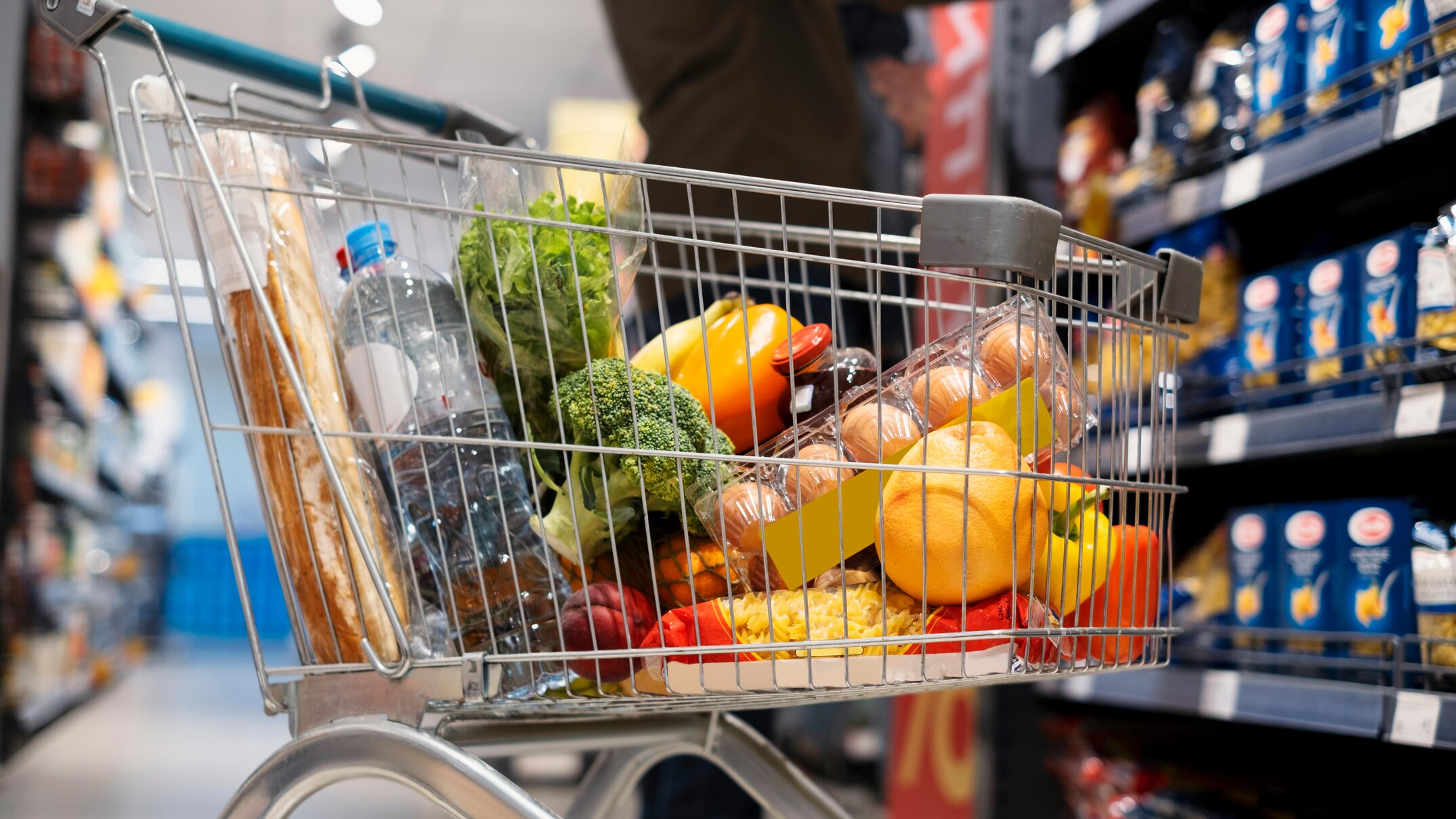Home brand products are cheaper at the supermarket. But are they good value?

Tucker's one of the biggest outgoings for most families and it seems like prices are keep going up.
The cost will be a five per cent hike on the previous year's amount, which was $160 per week.
If you're looking to spend less on food and drinks, as most people are, it's a good idea not to stick to just one brand you always go for. However, while store-brand items, such as "home brand" products, are often less expensive than name-brand alternatives, some people might worry about their quality and whether they offer good value for money.
We had a yarn with a retail guru and a qualified nutritionist to give us the lowdown on just how much a difference brands make when it comes to what we buy at the supermarket.
Why supermarkets are increasingly headed towards promoting their own brand names instead of generic products found on the shelves.
Mark Field is the founder of a consulting company that specialises in supply chains for food and groceries.
He says supermarkets often have their own range of products under private labels at varying price points, such as an affordable option at a low price and a mid-range option that competes with name-brand products.
than branded products.
"For them, it's all about getting the top quality at the best price possible and reaching out to customers in a fresh way," Mr Field says.
Some retailers like Aldi use a different sales system compared to the major supermarkets and focus mainly on own-brand products.
Compared to similar items sold at Coles Supermarkets and Australian supermarket chain Woolworths.
"The choice isn't available to you when you're inside, and in the end, the customer experience is different, but you've got a different expectation," Mr Field says.
What's the difference between private label products and regular brands?
Mr Field says supermarkets get private label products from Aussie companies and also from overseas companies, including manufacturers and producers.
In some cases, the product with a manufacturer's own brand may be made by the same manufacturer as a well-known branded product but with different ingredients or a slightly different composition.
"In Australia, a high percentage of suppliers who make branded products are also doing private label work," Mr Field says.
Some businesses will choose to produce under their own label as access to larger volumes helps their business operations and allows them to drive efficiencies and investments through their manufacturing plants.
What to consider when comparing products at the supermarket
At the shops, Mr Field reckons the best way to compare branded versus private labels is to check out the ingredients on the labelled packets.
G'day, have a squiz at the label on them tinned tomatoes, not just the price and size. Check the percentage of tomatoes in the can, mate.
It's as easy as can be for the consumer, then, to make a choice, not just based on price and packaging size, but [whether] they're getting the same quality of product that they're looking for.
Clare Collins, Laureate Professor in Nutrition and Dietetics at the University of Newcastle, reckons it's also a good idea to check the sodium and sugar levels when comparing products.
"What I've noticed is that sometimes generic brands can be more healthy, especially when it comes to sodium content," she says.
For items like canned tomatoes and beans, the low salt variety can often be cheaper.
Another way to save some cash is to buy frozen veggies, which are often cheaper than their fresh counterparts with similar quality, Professor Collins suggests.
“Frozen veggies tend to be locked in at the moment of harvest. Often what gets locked in is fresher than what heads to the warehouse, then cold storage, then the supermarket,” she says.
If you're after a particular brand, keep an eye out for it to be discounted
Even if you're happy trying out different products, you might be really loyal to certain brands.
Professor Collins says she is stoked to buy affordable canned tomatoes and beans, but she's a bit fussy about her go-to tea brand.
"I like this one particular brand, so I keep an eye on them and buy a couple of months' worth when they're having a sale," she says.
It's not always easy to stretch the budget for groceries to the point where you can buy in bulk, but it's a good idea to keep an eye out for special deals and sales, Mr Field says.
"If things are tough, you might struggle to buy one, let alone buy more," he says.
Fair dinkum? I reckon you might need to give it a bit more time and just wait for the next sales campaign to kick in.
Professor Collins suggests allocating a specific budget for discretionary food items, such as treats, snacks and takeaways.
She suggests keeping a tally of how much you spend on those items on a weekly basis.
We conducted a study to gauge just how much people were spending on all that stuff, and what we discovered was that by planning ahead, individuals were ending up saving a pretty penny.
Posting Komentar